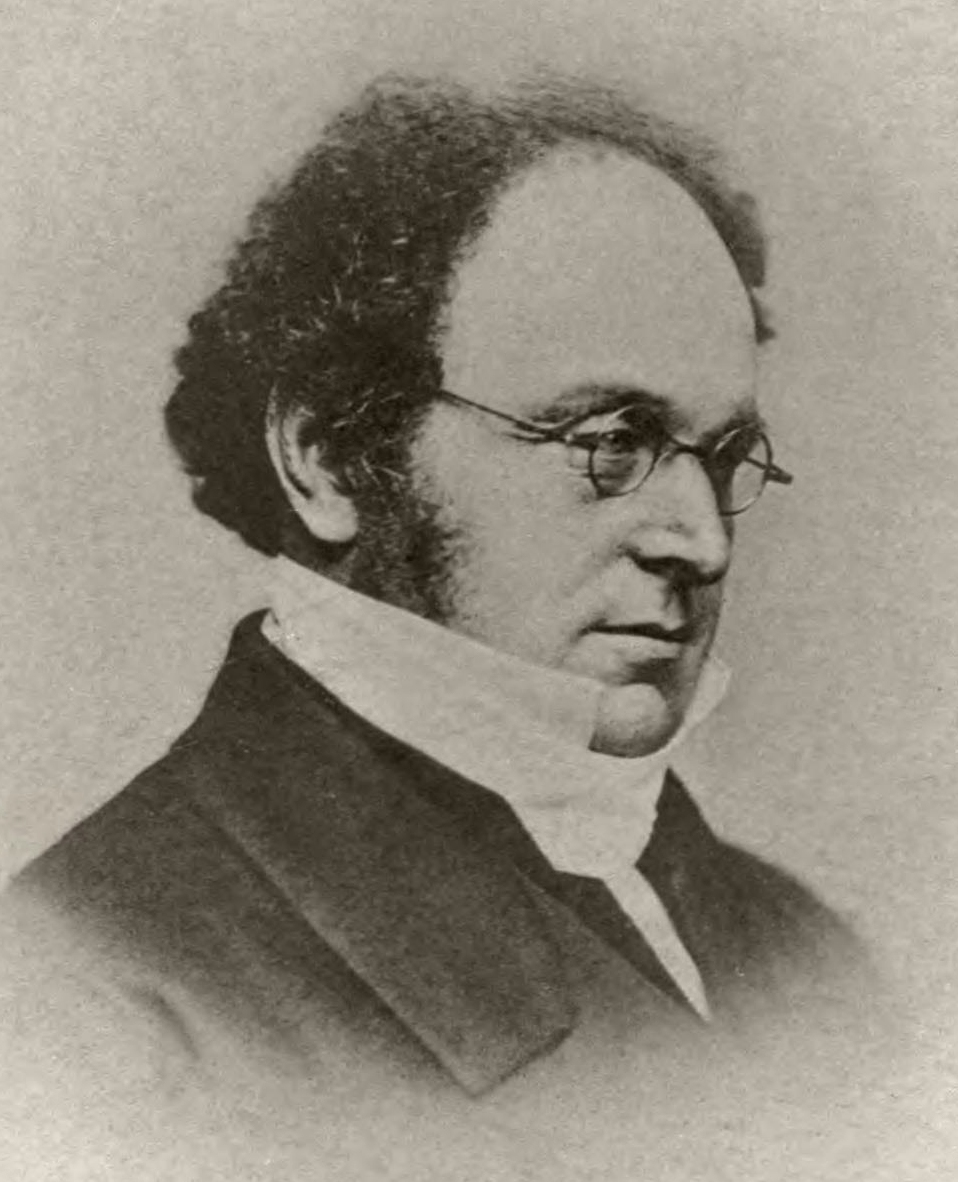Advertisement, p.4
The Differential and Integral Calculus (1836)
Famous Augustus De Morgan Quotes
Introductory p.2
A Budget of Paradoxes (1872)
Advertisement, pp.3-4
The Differential and Integral Calculus (1836)
...there is such a thing as the square root of 6, and it is denoted by √<span style="text-decoration: overline">6</span>. But we do not say we actually find this, but that we approximate to it.
The Differential and Integral Calculus (1836)
“The lowest steps of the ladder are as useful as the highest.”
Source: On the Study and Difficulties of Mathematics (1831), Ch. I.
“A large quantity of examples is indispensable.”
Preface, pp. viii
The Differential and Integral Calculus (1836)
Augustus De Morgan Quotes about mathematics
Source: On the Study and Difficulties of Mathematics (1831), Chapter I. Introductory Remarks on the Nature and Objects of Mathematics.
Source: On the Study and Difficulties of Mathematics (1831), Ch. I.
Preface, p. iii
The Differential and Integral Calculus (1836)
Source: On the Study and Difficulties of Mathematics (1831), Ch. I.
The Differential and Integral Calculus (1836)
Advertisement, p.3
The Differential and Integral Calculus (1836)
Augustus De Morgan Quotes about knowledge
A Budget of Paradoxes (1872)
Preface, p. v
The Differential and Integral Calculus (1836)
The Differential and Integral Calculus (1836)
Introductory p.4
A Budget of Paradoxes (1872)
Introductory p.5
A Budget of Paradoxes (1872)
Formal Logic (1847)
Augustus De Morgan Quotes
Advertisement, p.3
The Differential and Integral Calculus (1836)
The Differential and Integral Calculus (1836)
A Budget of Paradoxes (1872)
A Budget of Paradoxes (1872)
The Differential and Integral Calculus (1836)
The Differential and Integral Calculus (1836)
Introductory p.9
A Budget of Paradoxes (1872)
Introductory Chapter, pp.9-10
The Differential and Integral Calculus (1836)
Introductory p.1
A Budget of Paradoxes (1872)
"Short Supplementary Remarks on the First Six Books of Euclid's Elements" (Oct, 1848) Companion to the Almanac for 1849 as quoted by Sir Thomas Little Heath, The Thirteen Books of Euclid's Elements Vol.1 https://books.google.com/books?id=UhgPAAAAIAAJ, Introduction and Books I, II. Preface, p. v.
Source: On the Study and Difficulties of Mathematics (1831), Ch. I.
The Differential and Integral Calculus (1836)
Author's Preface
On the Study and Difficulties of Mathematics (1831)
Duhamel, Cours d'Analyse de l'Ecole Polytechnique. Paris, Bachelier. vol i 1841 vol. ii. 1840.
The Differential and Integral Calculus (1836)
“The moving power of mathematical invention is not reasoning, but imagination.”
Quoted in Robert Perceval Graves, The Life of Sir William Rowan Hamilton, Vol. 3 (1889), p. 219.
Advertisement, p.4
The Differential and Integral Calculus (1836)
“The work now before the reader is the most extensive which our language contains on the subject.”
Preface, p. iii
The Differential and Integral Calculus (1836)
Source: On the Study and Difficulties of Mathematics (1831), Ch. I.
“I did not hear what you said, but I absolutely disagree with you.”
Attributed to Augustus De Morgan in: August Stern (1994). The Quantum Brain: Theory and Implications. North-Holland/Elsevier. p. 7
I use the word in the old sense: ...something which is apart from general opinion, either in subject-matter, method, or conclusion. ...Thus in the sixteenth century many spoke of the earth's motion as the paradox of Copernicus, who held the ingenuity of that theory in very high esteem, and some, I think, who even inclined towards it. In the seventeenth century, the depravation of meaning took place... Phillips says paradox is "a thing which seemeth strange"—here is the old meaning...—"and absurd, and is contrary to common opinion," which is an addition due to his own time.
A Budget of Paradoxes (1872)
It is also frequently said, when a quantity diminishes without limit, that it has nothing, zero or 0, for its limit: and that when it increases without limit it has infinity or ∞ or 1⁄0 for its limit.
The Differential and Integral Calculus (1836)
This was the method followed by Euclid, who, fortunately for us, never dreamed of a geometry of triangles, as distinguished from a geometry of circles, or a separate application of the arithmetics of addition and subtraction; but made one help out the other as he best could.
The Differential and Integral Calculus (1836)
The portion of the Integral Calculus, which properly belongs to any given portion of the Differential Calculus increases its power a hundred-fold...
The Differential and Integral Calculus (1836)
